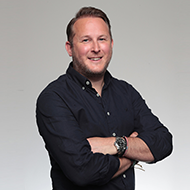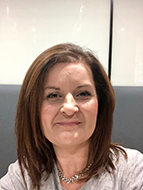Neurodiversity
There are thousands of jobs in the travel sector and being neurodiverse should not be a barrier to any of them.
Neurodiversity is becoming a more common topic of conversation, as industry-leading organisations wake up to the amazing capabilities of neurodivergent people, and recognise them for the superheroes they are and the additional talents they can bring to a business.
Hays Travel, the UK agency chain with the most retail stores, has taken steps to ensure it is inclusive. The company employs more than 4,000 people and has added a cognitive assessment stage to its apprenticeship scheme to identify areas where someone might need some extra support.
Right from their induction, apprentices are paired with mentors who can help and champion them throughout their journey.
Angela Riseam-Smith, head of training at Hays Travel, says the scheme has really helped neurodiverse apprentices and the approach “celebrates individuals for their unique personalities, resulting in happy and successful workers who go on to have fulfilling, lifelong careers”.
In July, six neurodiverse young people graduated from Manchester airport’s internship programme after successfully completing the year-long course.
The group took on placements in three areas of the airport, while receiving additional support. Education manager Joanna Jackson says the interns all passed with flying colours and are “crucial to building a more diverse and equitable workplace”.
While there is some great work being done to raise awareness of neurodivergent needs and to facilitate inclusion within the travel community, Attraction World Group chief executive Olly Nicholls says there is still “a lot more to be done”.
Olly, who has ADHD, says the industry needs focus groups run by leading figures to get the word out on how to embrace and support neurodiverse people, and there should be awards for companies who are doing the most.
He also suggests travel organisations drop the requirement to have any formal qualifications, so neurodiverse people who struggle with exams are still given a chance to show how perfect they are for a job.
 Credit: Shutterstock/Vitalii Vodolazskyi
Credit: Shutterstock/Vitalii Vodolazskyi


is the chief executive of Attraction World Group
“At Attraction World Group, we have developed and communicated a commitment to diversity and inclusion in hiring practices, including neurodiversity. We have adjusted the interview process to be more inclusive and accessible, and removed the need for degrees.
“That means we can expand our talent pool to include more neurodiverse candidates who may struggle with formal exams – as I do. Raising awareness of neurodiversity is key to how we, as an industry, embrace, engage and support our neurodiverse colleagues. To foster a more inclusive and understanding work environment, we should promote awareness and education about neurodiversity among employees. Implementing flexible work arrangements and communication styles to accommodate individual needs, and creating sensory-friendly workspaces would be a start.
“I still believe there is a big misunderstanding around neurodiversity, and that travel needs to embrace the wonderful talent neurodiverse individuals can bring. It needs to be spoken about every day.”

is a client relationship manager at Inntel and a Neurodiversity in Business travel ambassador
“The challenges of neurodivergent people are becoming more recognised in the travel industry. Change is happening – but there’s a lot more to be done. Some companies have equality, diversity and inclusion teams deployed to include neurodiversity, while others are at the start of their journey.
“There are some fantastic industry bodies facilitating education and awareness; organisations doing great work in the event space; and UK airports offering schemes to support families with neurodiversity. Travel agencies are also looking at how to support neurodiverse people.
“A collaboration of industry bodies and travel professionals is vital to making lasting change. It boils down to thinking about other people and learning what you can do to help. That’s something we’re good at in the travel industry. It is about getting the message out and making changes to create inclusion for everybody.”
